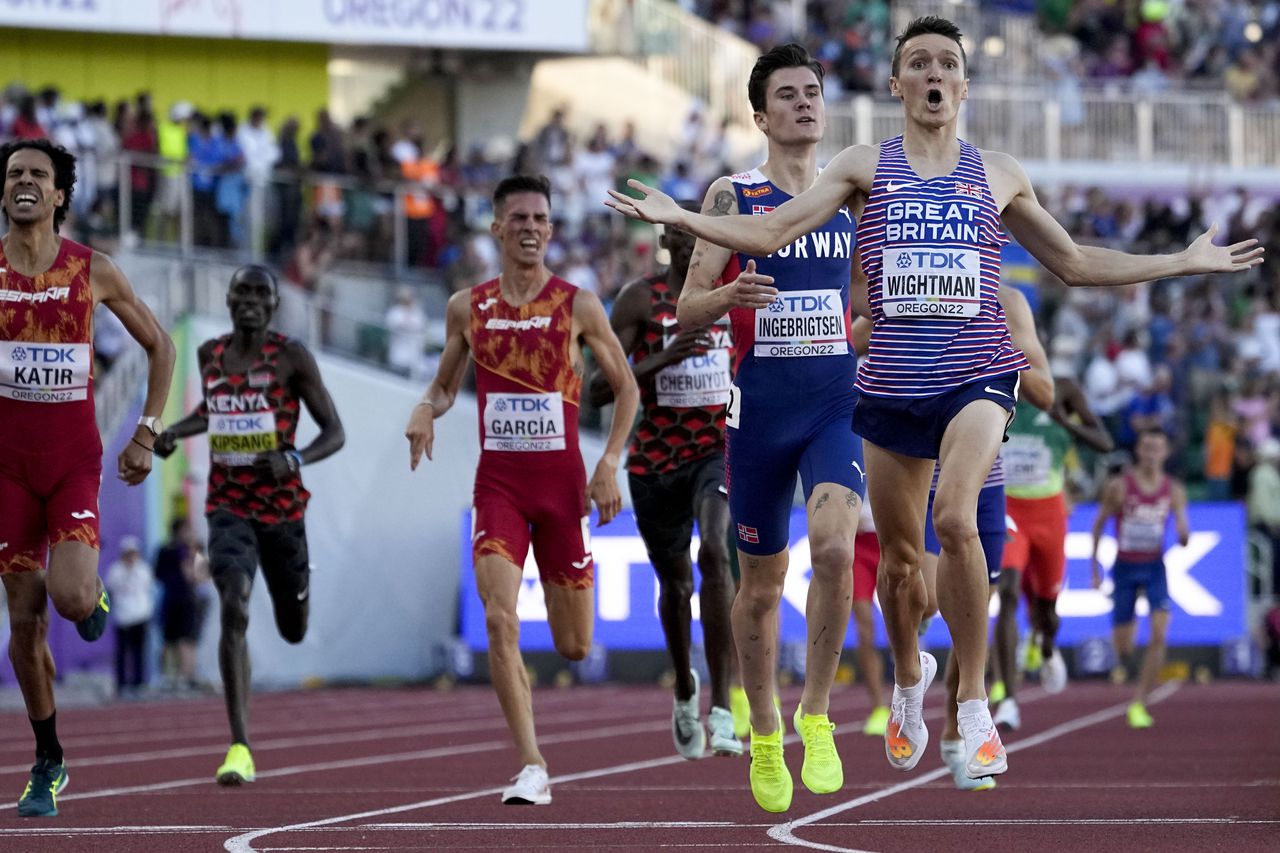Running events have been a popular form of athletic competition since ancient times, with the first recorded instances dating back to the Ancient Olympic Games in 776 BCE. Throughout history, these events have evolved, incorporating various distances, terrains, and formats. In recent years, the face of running events has been transformed further by the emergence of online gambling. Online gambling, a rapidly growing industry, has expanded to include sports betting, and running events are no exception. The combination of technology and global accessibility has turned this once niche market into a thriving segment of the sports betting industry. This article will explore the impact of online gambling on running events, from the growth of betting platforms and casino that accept Bitcoin to changes in event organization and sponsorship, as well as the legal and ethical concerns that come with it. In understanding these effects, we can better appreciate the ways in which online gambling is shaping the future of running events and how stakeholders can navigate the challenges and opportunities that arise.
The growth of online gambling platforms
As the online gambling industry has grown exponentially over the past few years, so too has its presence within the realm of running events. This growth can be attributed to several factors, including the proliferation of betting websites and mobile apps, the variety of bets available for running events, and the global reach and accessibility of online gambling platforms.
The development of betting websites and mobile apps dedicated to sports has made it easier than ever for individuals to engage in gambling on running events. User-friendly interfaces, secure transactions, and personalized experiences have attracted an increasing number of users to these platforms. The convenience of placing bets from anywhere in the world and at any time has contributed to the rapid growth of online gambling in running events.
The variety of bets available for running events has also played a significant role in the growth of online gambling platforms. These bets can be broadly categorized into three types:
- Outright winner: Bettors can wager on who they think will win a particular race, whether it’s a marathon, a track event, or a relay.
- Individual performance: Bets can be placed on an athlete’s performance in a race, such as achieving a personal best or breaking a record.
- Prop bets: These bets involve specific occurrences within a race, such as the fastest lap time, the number of lead changes, or even the weather conditions on race day.
Online gambling platforms have expanded the reach of running event betting to a global audience. Fans from different countries can now participate in betting on their favorite athletes or events, regardless of their geographical location. This widespread accessibility has led to a more diverse betting market and has increased the overall interest in running events, ultimately contributing to the growth of online gambling platforms in this domain.
Technological advancements and their influence
The rapid evolution of technology has had a profound impact on the online gambling landscape, particularly within the context of running events. Advancements in live streaming, virtual and augmented reality, and blockchain technology have not only transformed the betting experience but also influenced the ways in which running events are organized and consumed.
Live streaming has become increasingly popular, allowing fans to watch running events from anywhere in the world. This technology has also enabled online gambling platforms to provide real-time data, such as race progress and athlete performance metrics, which bettors can use to make more informed decisions. As a result, the betting experience has become more immersive and engaging, attracting a wider audience to running events.
Virtual and augmented reality (VR/AR) technologies have the potential to revolutionize the way fans experience running events. By using VR/AR headsets or mobile devices, spectators can immerse themselves in a virtual environment, experiencing the race from the athlete’s perspective or even participating in virtual races themselves. This technology not only enhances the spectator experience but also opens up new opportunities for betting markets, such as wagering on virtual races or betting on performance in virtual training sessions.
Blockchain technology has begun to make its presence felt in the online gambling industry, particularly through the use of digital currencies like BTC and Ethereum. These cryptocurrencies offer a decentralized and secure method of transaction, which can be particularly appealing to bettors who value privacy and anonymity. Additionally, blockchain technology can improve the transparency and security of betting platforms, reducing the risk of fraud and ensuring that users have a fair and trustworthy gambling experience. As the adoption of digital currencies and blockchain technology continues to grow, their influence on online gambling platforms and running events is expected to increase.
Changes in event organization and sponsorship
The rise of online gambling in running events has led to significant changes in how these events are organized and sponsored. As gambling platforms gain prominence and profitability, they have also become key stakeholders in the world of running events, influencing sponsorship deals, athlete endorsements, and marketing strategies.
The growing popularity of online gambling has attracted betting companies to invest in running events as sponsors. These companies are keen to leverage the global audience and visibility that running events offer, using their sponsorship to promote their brand, products, and services. This influx of sponsorship money from the gambling industry has provided event organizers with additional financial resources, allowing them to improve event infrastructure, increase prize money, and expand their marketing efforts.
As betting companies become increasingly involved in running events, they are also offering endorsement deals to top athletes. These partnerships can provide athletes with valuable financial support and give them a platform to increase their visibility and personal brand. In return, the betting companies benefit from the association with popular and successful athletes, which can help to attract more customers to their platforms.
The involvement of online gambling platforms in running events has led to the development of more sophisticated and targeted marketing strategies. Event organizers and casinos accepting Paysafe are collaborating to create unique promotions, contests, and special offers that drive fan engagement and encourage betting on running events. Furthermore, these partnerships can lead to the sharing of data and insights, enabling both parties to refine their marketing tactics and better understand their target audience. This synergy between event organizers and online gambling platforms has the potential to create a mutually beneficial relationship that drives growth and innovation in both sectors.
Impact on running event participation and engagement
The growth of online gambling in running events has had notable effects on participation and engagement from both spectators and athletes. The increased interest from fans and the heightened competitiveness among professional athletes contribute to an evolving landscape for running events.
The accessibility and variety of betting options available through online gambling platforms have attracted more fans to running events. Spectators are now not only watching these events for pure entertainment but also participating in the excitement of placing bets on their favorite athletes or specific race outcomes. This increased interest has resulted in higher viewership numbers and more engagement on social media, which ultimately benefits event organizers, athletes, and sponsors alike.
The rising popularity of running events, fueled in part by online gambling, has inspired many amateur runners to participate in these events themselves. Local and charity races often experience an influx of participants, driven by the desire to emulate professional athletes and be a part of the growing running community. This increase in participation has positive implications for public health and the promotion of an active lifestyle.
As online gambling drives more attention and financial resources towards running events, professional athletes are under greater pressure to perform at their best. With increased prize money, sponsorship deals, and the potential for a larger fan base, there is a greater incentive for athletes to train harder and push their limits. This heightened competitiveness leads to more exciting and closely contested races, which in turn attract even more interest from fans and bettors.
Legal and ethical concerns
While the growth of online gambling in running events has brought about numerous benefits, it has also raised several legal and ethical concerns that must be addressed by stakeholders. Regulation and licensing of online gambling platforms, responsible gambling, and the integrity of running events are all important aspects to consider in order to ensure a sustainable and responsible betting landscape in the world of running events.
As online gambling continues to expand, governments and regulatory bodies must work together to establish a robust framework for the licensing and oversight of gambling platforms. This includes ensuring that platforms operate within the confines of local laws, protecting users’ personal and financial information, and adhering to guidelines for fair and transparent gambling practices. Proper regulation and licensing will help to create a safe and trustworthy environment for bettors while also addressing potential issues related to money laundering or tax evasion.
The ease of access and convenience of online gambling platforms can contribute to an increased risk of problem gambling and addiction. It is essential for gambling platforms to implement responsible gambling measures, such as setting deposit limits, offering self-exclusion options, and providing resources for addiction prevention and treatment. Additionally, education and awareness campaigns targeting both bettors and the general public can help to promote responsible gambling practices and minimize the potential harm caused by problem gambling.
The involvement of online gambling in running events raises concerns about the potential for match-fixing and the undermining of the integrity of the sport. Event organizers, athletes, and gambling platforms must work together to combat these threats by implementing strict anti-corruption measures, such as monitoring betting patterns, conducting thorough investigations into suspicious activities, and enforcing strict penalties for those involved in match-fixing. Ensuring the integrity of running events is crucial to maintaining the credibility of the sport and the trust of fans and bettors alike.


























